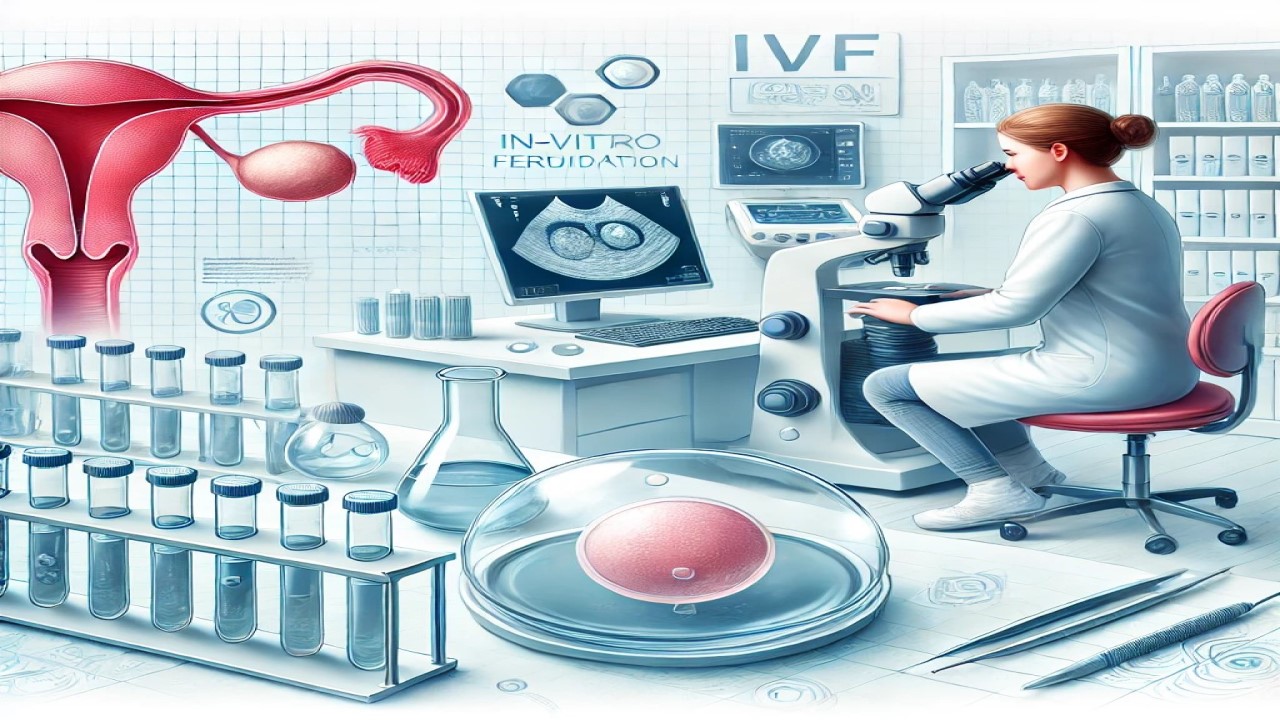For a couple struggling to get pregnant, IVF might be the most commonly suggested route by friends and family. However, not many couples know how this procedure works, which may make them feel hesitant about undergoing this procedure. In this article, we aim to explore just that by sharing what happens during a typical IVF cycle, how it can be beneficial for your pregnancy journey and whether you should even consider it in the first place. Let’s find out together and answer all your questions surrounding IVF.
What is IVF? How does it help in getting pregnant?
In-Vitro Fertilisation or IVF, is the process of retrieving an egg from the female womb and fertilising it with the male sperm in lab conditions (hence, ‘in-vitro’). This process is commonly undertaken by couples who struggle with infertility and face problems with naturally conceiving a baby. IVF helps couples to avoid common causes of infertility such as blocked fallopian tubes, PCOS, uterine lining issues such as presence of fibroids, polyps and other congenital abnormalities – thereby increasing their odds of getting pregnant. For those thinking of IVF as an experimental treatment, statistics show that 55,000 women in the UK had more than 76,000 IVF cycles in 2021, and the number has since only grown.
But how does it all work?
The process of IVF
IVF treatment takes place in the form of cycles, and each cycle usually contains the following steps.
Ovarian stimulation
The first step in an IVF cycle is ovarian stimulation. At this stage, your fertility expert administers drugs such as FSH (Follicle stimulating hormone) and LH (Luteinizing Hormone) that help with production of eggs in the ovaries. These drugs allow the ovaries to produce multiple eggs at once, which increases the chances of a successful fertilisation. It is often accompanied by ultrasounds and blood tests that help to observe when the eggs are mature enough to induce ovulation.
Egg retrieval
Once the ovarian stimulation step is completed and the eggs are matured enough, the next step is egg retrieval. As the name suggests, this process involves retrieval of eggs from the ovarian follicles, after the stimulation period has been completed. This minor surgical procedure is done under sedation and lasts for no more than 20-30 minutes, after which the woman can go back home the same day.
Fertilisation in the lab
Once the eggs are retrieved from the ovarian follicles during the egg retrieval process, they are immediately transferred to the lab, where the fertilisation takes place. The retrieved egg from the female is combined with male sperm (from their partner or sperm donor) using intracytoplasmic sperm injection (ICSI), which allows for a single sperm to be directly injected in the female egg. These fertilised eggs are now called an embryo.
Embryo culture
After the fertilisation in the lab is completed, the embryos (fertilised eggs) are monitored for around 3-5 days. This process is called an embryo culture and is done to ensure the healthy development of the embryo before transfer and implantation back into the uterus.
Embryo transfer
Once the embryo culture is completed, your fertility expert will then choose a healthy embryo and transfer it to the uterus using a thin catheter. This procedure is called the embryo transfer, and is quick. The additional embryos are frozen and stored safely for future use, if required.
Pregnancy development and test
After the embryo has been transferred to the uterus, you may be given medication to help supplement the production of the progesterone hormone in your body. This hormone is used to facilitate the development of pregnancy by supporting the uterine lining and embryo implantation. After around 10-14 days, your doctor may suggest a blood test to confirm the pregnancy.
It is important to remember that no treatment can guarantee conception. It can only improve your chances of getting pregnant. Please also know that the above process is just an example of what your IVF procedure could look like. If you do decide to try IVF treatment, then your exact IVF journey could look slightly different, depending on your individual circumstances and choice of healthcare provider.
But don’t let this deter you from getting IVF treatment. If there is a slight change in the process, and you’re happy with the recommended procedure, you can always choose a different healthcare provider or fertility clinics. Finding a good IVF clinic in London is now easier than ever, with more clinics opening each year. But how do you find the right clinic?
Finding the right IVF clinic for your pregnancy
We understand how emotionally and financially challenging it can be for couples to juggle all these things at once, when all you want is to start a family. Thankfully, choosing the right IVF clinic for your journey can help reduce some of this stress. For those wondering if IVF services are available on the NHS – yes, they are! However, these services have strict eligibility requirements, and very long wait times. For those looking for more immediate treatment, private IVF clinics might be a preferred option. But how can you choose the right clinic for your IVF treatment?
Here are some things to look for when choosing a good fertility clinic:
- Good reviews from friends and family
- Strong online presence and testimonials
- Comprehensive treatment options available
- Reasonable treatment costs and customisation options
- Located conveniently, ideally close to your home to make travelling to appointments easy
- Verified accreditations, certifications, and compliance certificates
- A friendly and helpful team, after all, you’ll be spending a lot of time with them
You can also prioritise other factors based on your personal preference and choices.
Is IVF right for you?
Undergoing IVF is a very personal decision. While it’s true that IVF treatment is a good solution for some couples, it’s not right for everyone. And while many people may recommend IVF treatment, the final decision is always yours. Taking the time to learn about IVF treatment, to understand the IVF process, and to know what your options are, will help you make an informed decision. And it’s important to remember that if you do decide to try IVF treatment, there are plenty of great private clinics to choose from.



